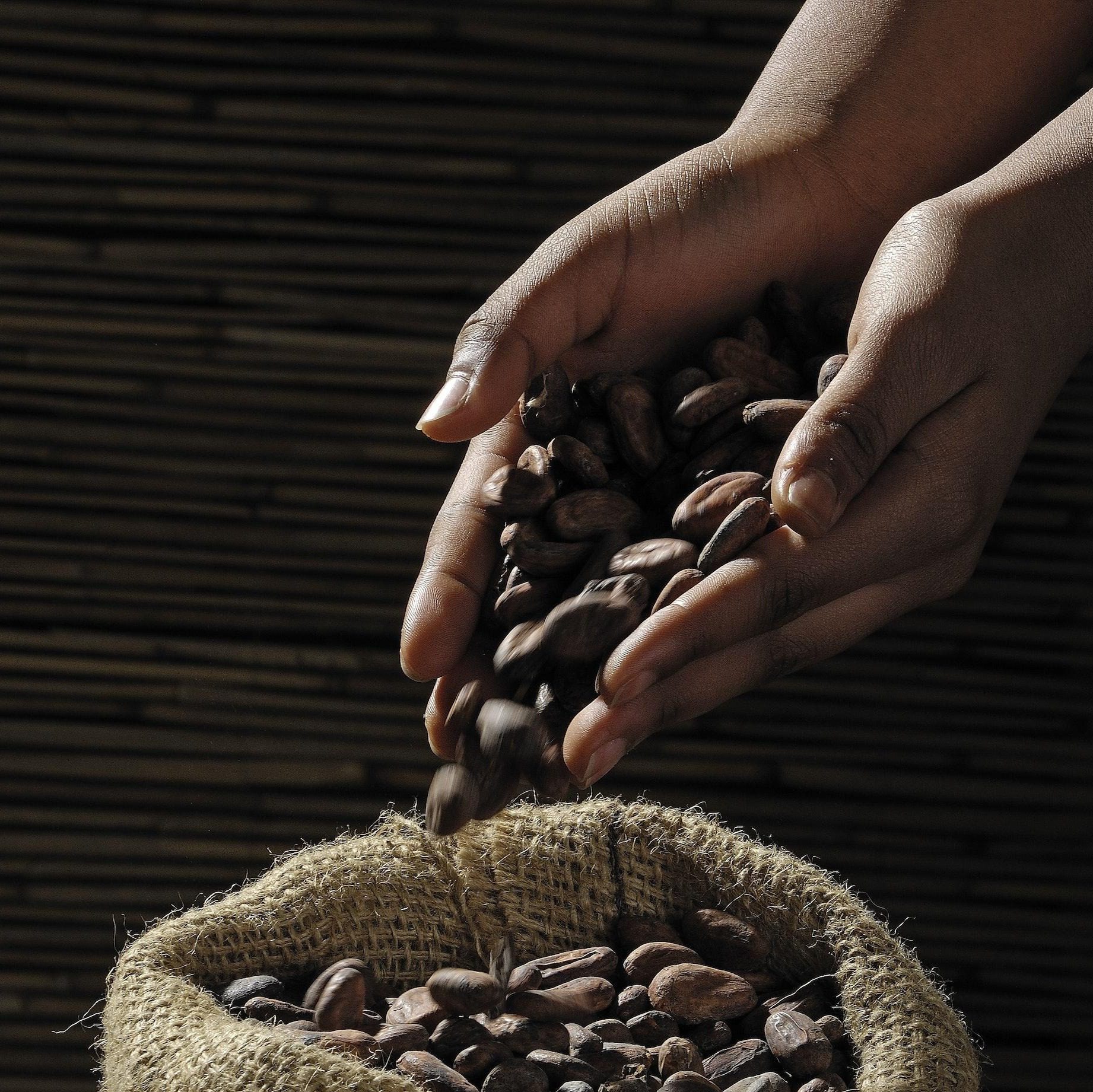NIGERIA’S 2023 OIL EXPORT TO INDONESIA HIT $3.8BN
Nigeria exported crude oil and gas valued at over $3.8bn to Indonesia in 2023, the Indonesian Ambassador to Nigeria, Dr Usra Harahap, has said. Harahap disclosed this on Wednesday in Abuja during a courtesy visit to the Permanent Secretary, Federal Ministry of Petroleum Resources, Nicholas Ella. At the meeting, he expressed the desire of the Republic of Indonesia to deepen the existing collaboration with Nigeria in the development of the oil and gas sector, according to a statement issued by the petroleum ministry’s Deputy Director, Press and Public Relations, Oluwakemi Ogunmakinwa. The Indonesian ambassador said Indonesia was exploring ways to sustain its relationship with Nigeria. He was quoted as saying, “We are looking for ways to maintain and improve a beneficial cooperation and relationship that we have held for the past 59 years.” The ambassador noted that the oil and gas sector of the economy was of common interest to both countries, adding that his country would want to explore areas of more collaboration with Nigeria in that regard. The statement read in part, “He (Harahap) noted that Indonesia imported over $3.8bn worth of oil and gas from Nigeria in 2023 and stressed the need for Nigeria and Indonesia to resume discussions on the establishment of a Memorandum of Understanding in the oil and gas sector which had been suspended since 2017.”
CREDIT TO GOVERNMENT RISES 2% TO N19.98TRN
Credit to the government rose month-on-month, MoM, by 2.0 percent to N19.98 trillion in April from Data from the Central Bank of Nigeria, CBN, Money and Credit Statistics for April showed mixed trend in credit to the government since January where it stood at N23.5 trillion. According to the CBN, credit to the government grew to N33.92 trillion in February and fell to N19.58 trillion in March but went up to N19.98 trillion in April The data also showed that credit to the private sector rose MoM by 2.4 percent to N72.9 trillion in April from N71.2 trillion in March. This resulted in a 2.31 percent MoM rise in net domestic credit to N92.9 trillion in April from N90.8 trillion in March. Analysts at Cowry Asset Management Limited attributed the March decline in credit to the government to the effect of policy rate hike by the CBN. Commenting in the company’s weekly financial Market review and outlook, they said: “This could be linked to the effect of the policy rate hike by the monetary authority on the economy where the CBN’s Monetary Policy Committee (MPC) has raised interest rate by 600 basis points to 24.75 percent so far in 2024 from 18.75 percent just to achieve price stability. “The full impact of the policy rate hike by the central bank will continue to be seen in the economy as borrowing costs trend higher while businesses seek alternative funding options in the local debt market through the issuance and raise of commercial papers for the short term in order to keep business operations afloat.” However, the increase in credit to the government in April contradicts analysts’ prediction of a continuous declining trend.
EQUITY MARKET INVESTORS GAIN N954BN IN ONE WEEK
The Nigerian equity market was in the green zone last week, as investors gained N954bn. At the end of the week, the market capitalisation and the All-Share Index appreciated by 0.02 per cent to close at N56.17tn and 99,300 points, respectively. During the week, investors traded 2.19 billion shares worth N31.30bn in 39,362 deals on the exchange floor. The financial services industry with 1.91 billion shares worth N23.92bn exchanged in 21,717 deals, led the activity chart as evaluated by volume. This industry contributed 76.42 per cent and 87.41 per cent, respectively, to the overall stock turnover value and volume. The oil and gas sector came next with 2,109 sales, totalling 55.35 million shares valued at N3.09bn. Similarly, the agriculture industry ranked third with a turnover of 45.09 million shares in 1,615 deals, valued at N377.62m. The top three equities, Abbey Mortgage Bank, Access Holdings and Zenith Bank were the most traded measured by volume, amounting to 1.13 billion shares worth N14.91bn in 6,494 deals. These shares contributed 51.57 per cent and 47.64 per cent, respectively, to the overall equity turnover volume and value. Performance was generally positive across sectoral indices, except the Industrial Index, which dipped by 0.13 per cent.
NAIRA DEVALUATION PUSHES LISTED FIRMS’ FOREX DEBT NEAR N4TN
The dollar debts of 15 listed companies have hit about N3.76tn as of the end of December 2023, according to The PUNCH analysis of their annual reports filed with the Nigerian Exchange Limited. This marks about a 109.74 per cent increase year-on-year from N1.79tn recorded in 2022 on the back of the depreciation of the naira. In dollar terms, the companies’ total debts, including trade payables, Letters of Credit, and dollar-denominated loans, rose by 6.59 per cent to $4.15bn from $3.89bn in the previous year. The reviewed companies which cut across different sectors of the economy, ranging from telecoms to the real sector to the oil & gas sector include Dangote Cement, BUA Cement, Lafarge, Dangote Sugar, NASCON Allied Industries, Cadbury, Unilever, Nestle, International Breweries, Nigerian Breweries, Guinness, TotalEnergies Marketing, Seplat, MTN Nigeria and Airtel Africa. On June 14, 2023, the Central Bank of Nigeria announced the harmonisation of the segments of the foreign exchange market into the National Foreign Exchange Market domiciled on the FMDQ. Since the development, the Nigerian currency has struggled against other foreign currencies and weakened over the months, although the different segments of the market achieved a convergence earlier this year. Following the exchange reforms, the naira went from about 471/$ to 755/$ at the Investors and Exporters window on June 14, 2023.
NIGERIA MEETS IMF OBLIGATIONS WITH NO OVERDUE PAYMENTS — REPORT
The International Monetary Fund, an international organisation that provides financial assistance to countries facing economic difficulties, has released Nigeria’s financial position report as of April 30, 2024. This is according to the latest data accessed by the PUNCH on the Fund’s website on Monday. The report shows that Nigeria has no overdue obligations to the fund, indicating that the country has been meeting its financial commitments to the IMF. Nigeria joined the IMF on March 30, 1961, under Article XIV, which outlines the country’s membership status and obligations. As a member, Nigeria has a quota of SDR 2,454.50 million (100 per cent of quota), with the IMF holding SDR 3,183.15 million (155.35 per cent of quota) in currency. The reserve tranche position, which represents the amount of funds Nigeria has available for immediate use, stands at SDR 175.47 million (7.15 per cent of quota). Special Drawing Rights, an international reserve asset used by the IMF, is not a currency but is based on a basket of currencies, including the US dollar, euro, Chinese renminbi, Japanese yen, and British pound sterling. This allows countries to borrow funds from the IMF in times of economic need. Nigeria has outstanding purchases and loans totalling SDR 1,534.06 million (62.50 per cent of quota), including emergency assistance. However, the report highlights that the country has no overdue obligations to the IMF, demonstrating its commitment to meeting its financial obligations.
- CAPITALDIGEST MARKET REVIEW, 09/02/2026February 9, 2026
- CAPITALDIGEST DAILYNEWS, 09/02/2026February 9, 2026
- CAPITALDIGEST MARKET REVIEW, 02/02/2026February 2, 2026
Enter your email address for receiving valuable newsletters.
- CAPITALDIGEST MARKET REVIEW, 09/02/2026U.S. DOLLAR REBOUND TO BE CUT SHORT BY RATE CUT BETS, DOUBTS OVER FED INDEPENDENCE:...February 9, 2026
- CAPITALDIGEST DAILYNEWS, 09/02/2026TAXES, FUEL HIKE SLOW BUSINESS GROWTH IN JANUARY – NESG REPORT The report showed that...February 9, 2026
- CAPITALDIGEST MARKET REVIEW, 02/02/2026DOLLAR WEAKENS ACROSS THE BOARD AS YEN CLIMBS ON INTERVENTION RISK The dollar moved sharply...February 2, 2026












